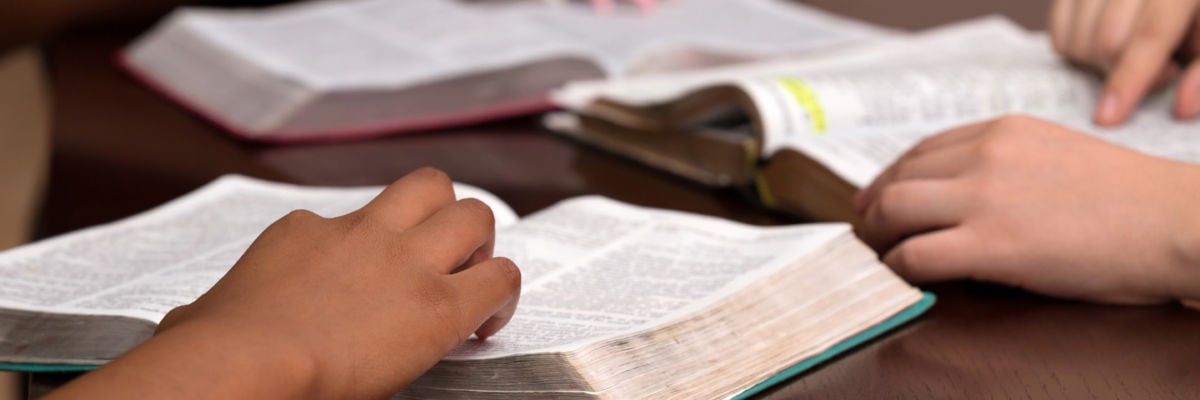
DAY 37
CHALLENGE
“How can you trust the Gospels when they can’t even agree on whether Jesus exorcized one demoniac or two, healed one blind man or two, rode on one animal or two, or had his Resurrection announced by one angel or two?”
DEFENSE
These incidents are not contradictions; they are reports that mention different details.
It is true the Gospels sometimes report an incident and mention only a single demoniac (Mark 5:2; Luke 8:27), blind man (Mark 8:22–23, 10:46; Luke 18:35), animal (Mark 11:2; Luke 19:30; John 12:14), or angel (Matt. 28:2; Mark 16:5), while other reports mention two demoniacs (Matt. 8:28), blind men (Matt. 9:27, 20:30), animals (Matt. 21:2), or angels (Luke 24:4; John 20:12).
These are not contradictions, because in none of these cases does an evangelist say there was only one of the things in question present. The evangelist may mention only one, but that leaves open the possibility—confirmed by one or more of the other evangelists—that there was more than one present.
It has often been noted that if several people witness a car accident, they will each observe and report different details when they recount it later. This phenomenon may be partly responsible for cases mentioned above. For example, if Matthew was an eyewitness to a particular event he may have remembered seeing two demoniacs, blind men, and so on, while non-eyewitnesses like Mark and Luke were dependent on sources who may have mentioned only one.
There also may be another phenomenon at work: dramatic simplification. Because books then were fantastically expensive (a copy of the Gospel of Matthew could have cost the ancient equivalent of more than $1,500), ancient authors worked under pressure to keep their books short. This could result in them presenting only an incident’s essentials, which could have the added benefit of making the story more focused and compelling.
If on a single occasion two people asked Jesus for a particular favor, like healing, or if two angels showed up to deliver a single message, the essence of the event could be communicated to the audience if only one was mentioned. After all, Jesus did grant a person’s request for healing, and an angel did show up to deliver a message. The mention of a similar companion in both cases was not essential.



